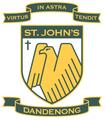Smart Study

The Science of Learning
As we approach the exam period in weeks 6 and 7, it's more important than ever for students to understand how learning truly happens. Research into the "science of learning" shows that practical study isn't just about working harder—it's about working smarter. Techniques like spaced practice, active recall, and self-testing have been proven to strengthen memory, deepen understanding, and boost performance.
In the coming weeks, we encourage all students to apply these evidence-based strategies to their revision. Our goal is not only to support success in the upcoming exams but also to help students develop lifelong learning habits that will serve them far beyond the classroom.
Stay tuned for practical tips, resources, and workshops designed to empower every learner to reach their full potential!
Below are some common student mistakes students use to study.
AVOID relying on passive study methods
- Highlighting, rereading and copying notes feel productive but aren't
- Use active recall – quiz yourself, teach aloud, or use flashcards
AVOID cramming before exams
- You will remember it in a day and forget it in a week
- Use spaced repetition. Study in short bursts over time to lock it into long-term memory
AVOID multitasking while studying
- Tik-Tok + Homework = distraction city
- Turn on Do Not Disturb and study in distraction-free blocks eg 30 minutes
Have a study schedule
- Studying 'when you feel like it' leads to procrastination and stress
- Set a weekly study plan and assign specific time blocks for each subject
AVOIDING hard topics
- Skipping the stuff you don't understand makes it worse
- Start with the most challenging task first and rotate topics
Maria Nasioulas Junior Curriculum Leader
